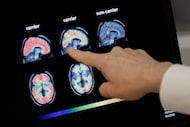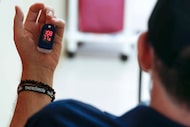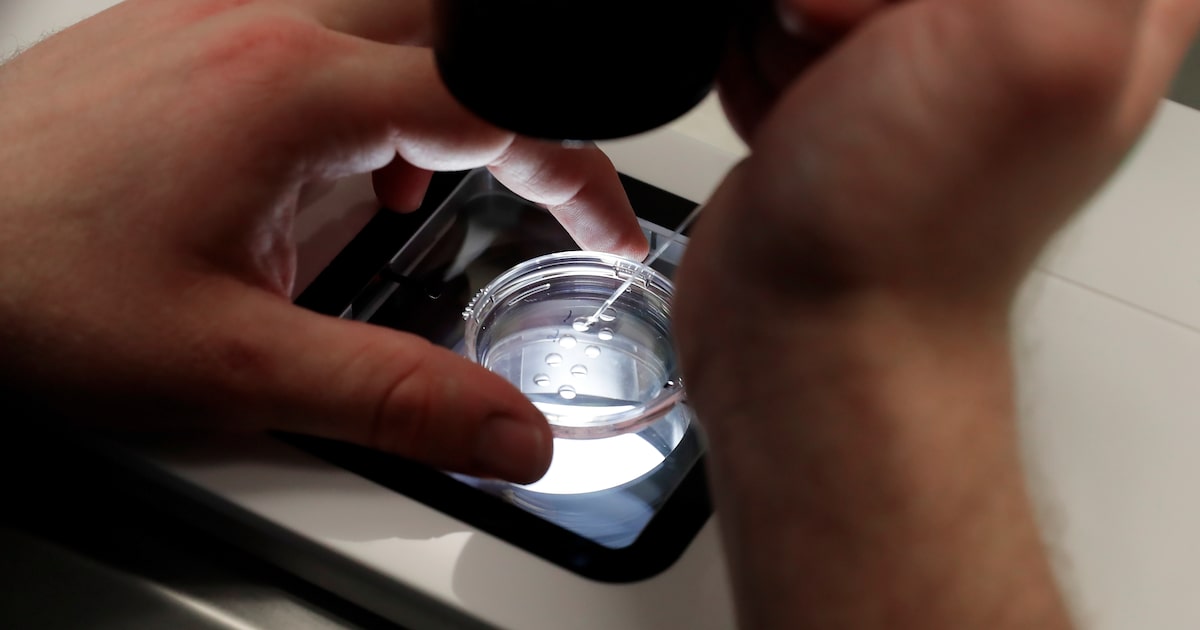A biotech company planting roots in Dallas will bring an AI-powered, noninvasive embryo test that aims to improve fertility outcomes.
Overture Life, which has offices in Europe and California, is part of a growing wave of startups using artificial intelligence and robotics to automate parts of egg freezing and in vitro fertilization, or IVF.
On Thursday, the company announced plans to open its first dedicated laboratory. The lab will be in Old East Dallas and offer embryo viability testing starting in early 2026. The test will analyze metabolites — the small molecules and chemicals produced during metabolism — to gauge whether an embryo is healthy enough for implantation.
“We know that every failed implantation is a big imposition on a family trying to have a child,” said Hans Gangeskar, chief executive officer of Overture Life. “That’s really the driving force here — making IVF better and reducing the emotional and financial stress on parents.”
Breaking News

Hans Gangeskar is the CEO of Overture Life.
Overture Life
Infertility affects about 1 in 6 people of child-bearing age worldwide, according to the World Health Organization. Reasons for infertility include low sperm count and gynecological conditions like endometriosis. To get past these hurdles, many couples turn to IVF, a process in which an egg is fertilized with sperm in a lab dish.
One IVF cycle costs anywhere from $15,000 to $30,000 on average in the United States, but the procedure has become more common in recent years. In 2023, an estimated 95,860 babies in the U.S. were born via IVF — up from 91,771 in 2022 — and IVF accounted for about 2.6% of all U.S. births, according to the American Society for Reproductive Medicine.
Before an embryo is implanted, a genetic test determines whether the embryo has any chromosomal abnormalities that could increase the odds of a miscarriage. This test typically involves removing a sample of about five to 10 cells from the embryo’s outer layer — the part that later forms the placenta — without touching the inner cluster that would become the baby.
If an embryo has the usual number of chromosomes, it’s more likely to implant and less likely to end in miscarriage or lead to chromosome-related conditions.
Even with preimplantation genetic testing, a normal chromosome result doesn’t rule out other genetic issues or explain every failed implantation, Gangeskar said.

Hafsa Irfan, head of clinical operations for Overture Life’s Dallas facility.
Overture Life
Instead of removing embryonic cells to look at chromosomes, Overture Life analyzes the fluid in which the embryo grows before the embryo is transferred. The test measures over 7,000 metabolites released by the embryo into the fluid, said Hafsa Irfan, the company’s head of clinical operations in Dallas.
Those measurements are then fed into AI-driven models that predict the likelihood of a healthy pregnancy. These models are trained on data gathered from a network of clinics Overture Life has collaborated with in the U.S., Latin America and Europe, Irfan said.
While Gangeskar could not comment on how many successful pregnancies the company’s test has resulted in, he said Overture Life has published several papers on the test’s efficacy and is looking forward to improving its AI models.
Once the lab is established, Gangeskar said, the company hopes to service IVF clinics in Dallas and throughout the area.
Miriam Fauzia is a science reporting fellow at The Dallas Morning News. Her fellowship is supported by the University of Texas at Dallas. The News makes all editorial decisions.
 New Texas initiative could shape the future of dementia research, scientists say
New Texas initiative could shape the future of dementia research, scientists say
Researchers hope the proposed institute will expedite scientific discoveries and AI innovation.
 Former Gov. Rick Perry backs access to psychedelic ibogaine at Dallas film event
Former Gov. Rick Perry backs access to psychedelic ibogaine at Dallas film event
The screening follows the Texas Legislature’s efforts to fund ibogaine research for treating mental health and neurological conditions.
 UT Arlington researcher developing electric Band-Aid to mend damaged hearts
UT Arlington researcher developing electric Band-Aid to mend damaged hearts
Backed by NIH funding, Yi Hong is testing an electrically active, regenerative patch that aims to help with recovery from heart attacks.
The cure for veterans’ mental health could be psychedelics, new documentary explores
Cinépolis Dallas hosts a sneak peek on ibogaine’s potential for mental health issues in veterans.
 Prescription drug coverage options are shrinking for Medicare shoppers. Here’s how
Prescription drug coverage options are shrinking for Medicare shoppers. Here’s how
The number of available, stand-alone drug plans has fallen for a few years, and that trend will continue for 2026.
